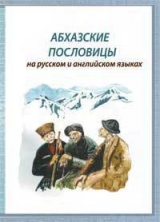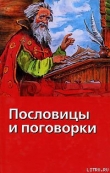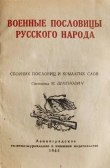
Текст книги "Абхазские пословицы"
Автор книги: Олег Шамба
Жанр:
Справочники
сообщить о нарушении
Текущая страница: 1 (всего у книги 4 страниц)
Абхазский государственный университет
Общественный фонд науки
АБХАЗСКИЕ
ПОСЛОВИЦЫ
На русском и английском языках
Собрал, перевел на русский
и обработал профессор Олег Шамба
Перевел на английский
профессор Роджер Джесси
Сухум, 2009
Abkhazian State University
Public Fund of Science
ABKHAZIAN
PROVERBS
In Russian and English
Collected, translated into Russian
and processed
Professor Oleg Shamba
Translated into English
Professor Roger Jesse
Sukhum, 2009
Из речи мудреца запомни хоть слово,
Чтоб не пропало зря.
Ведь даже щепка дерева большого
Дарует нам тепло, в печи горя.
К. Ломия
ОТ СОСТАВИТЕЛЯ
Горы поют... Седые вершины в белоснежных папахах ведут между собой разговор. Они – немногословные свидетели былых времен. Здесь даже камни говорят. Абхазы с материнским молоком впитали песню родной земли, их фольклор богат пословицами. Тема-тика их разнообразна, каждая из них – маленькое художественное произведение, отражающее быт, историю и социально-политическое мышление народа.
Данное издание, конечно, далеко не полное, но и оно дает представление о талантливости и мудрости абхазского народа, живущего в этом чудесном краю с древней культурой, богатой историей, издавна привлекавшим к себе, как магнит, внимание мыслителей, историков, краеведов и путешественников.
В большинстве своем пословицы метки, красочны, своеобразны и рифмованы. Трудно сохранить это в переводе, особенно если учитывать, что это двойной перевод: сначала с абхазского языка на русский, а потом на английский.
Эта коллекция пословиц – всего лишь небольшая часть золотого фонда фольклора, используемого и в настоящее время. Труды различных авторов, журналы, беседы с долгожителями, личные архивы составителя – все это легло в основу настоящего издания. Впервые включен в этот сборник ряд пословиц абхазов, проживающих в Турции.
Пословицы расположены в тематическом порядке, по разделам, хотя такое разделение условно, поскольку многие из них могут применяться в различных случаях.
Данная работа может быть использована в качестве учебного пособия для изучающих абхазский фольклор и английский язык.
Профессор Олег Шамба
From the speech of a wise man,
Though only a word is remembered,
The speech was not made in vain.
After all, even a chip of wood from a big tree
Grants warmth to us, burning in the furnace.
K. Lomia
FROM THE COMPILER
The mountains sing... Their hoary peaks, in their snow-white fur hats, carry on a conversation among themselves. They are laconic witnesses of times long past. Even the stones here speak. Abkhazians imbibed the songs of their native soil with their mothers’ milk, and their folklore is rich in proverbs. Their themes differ, and each is a small work of art reflecting the everyday life, history, and social and political thinking of the people.
This edition is of course far from complete, yet it at least gives an idea of the talent and wisdom of the people of Abkhazia – this lovely territory with its ancient culture and rich history which has, from time immemorial, drawn the attention of thinkers, historians, students of local folklore, and other visitors to it like a magnet.
The majority of proverbs in this book are most apt in their originality, rhythms, and local colouring. In quite a number of cases, unfortunately, this aptness is somewhat lost in translation, as it is difficult to fit them into the philological form of another language. For the first time, a number of proverbs of Abkhazians living in Turkey were included in this edition.
This collection of proverbs is a little of the folklore’s gold reserve being used nowadays. The works of various authors, magazines, direct conversations with elderly local inhabitants, and the archives of the compiler are the basic sources used for the compilation of this book.
The proverbs are divided by topic, although this division is perhaps somewhat artificial as many of them could be used in several different situations.
This book could be used as a reference handbook for those studying Abkhazian folklore, as well as for students of the English language.
Professor Oleg Shamba
ОТ ПЕРЕВОДЧИКА
В песне поется: «какой замечательный мир». Он многоликий и волнующий, и как много национальностей и народов его населяет. И каждый – со своей самобытной куль-турой, обычаями и традициями, которые передаются от поколения к поколению. Национальные пословицы и поговорки отражают мудрость и опыт народа, копившиеся веками.
Абхазия – это древняя страна с высокоразвитой культурой, в которой естественным образом возникло бесчисленное множество очень метких и запоминающихся выражений. Абхазы называют свою страну «Апсны», что переводится как «Страна Души». От поколения к поколению передается духовное наследие «Апсуара», своеобразный моральный кодекс, до сих пор оказывающий огромное влияние на все аспекты жизнедеятельности людей.
На протяжении тысячелетий Абхазия пережила много войн и различных нашествий, в результате чего сложилась ситуация, когда большинство этнических абхазов проживают за пределами родной страны. Тем не менее они по-прежнему поддерживают очень сильные связи с родиной, и это также нашло отражение в пословицах. Спустя 15 лет после войны 1992-93 гг. с Грузией за независимость, Абхазия была, наконец, признана своим могущественным соседом Россией и таким образом получила возможность мирного существования и развития.
После нескольких лет, проведенных в Москве, переехав в Абхазию, я имею возможность наблюдать жизнь страны как бы изнутри. Если ты не голливудская звезда, невозможно представить свадьбу на 800-1000 человек, которая не обходится без традиционной мамалыги (своего рода каша из кукурузной крупы), аджики (очень острая приправа из красного перца и чеснока), чачи (домашний напиток типа водки) и, конечно же, отличного вина из местного винограда.
Первое, что приятно удивило меня в Абхазии – необычайное гостеприимство местных жителей, но, даже прежде, я был поражен захватывающей красотой страны: горы со снежными вершинами, лесистые ущелья и долины, бесчисленные озера и реки и километры морского побережья с чистыми пляжами. Субтропический климат – еще один плюс, особенно после Москвы. Неудивительно, что так много пословиц отражают здешнюю чудесную природу: поющие горы, танцующие реки, сверкающее море. Но главное, конечно, люди, их характер, взаимоотношения и их связь с Родиной.
Я переехал сюда, убегая от суеты цивилизации, в поисках места, где я мог бы провести остаток жизни в неторопливой расслабленности. Наверное поэтому одна из самых привлекательных пословиц для меня – «не делай работу, пока она не закричит», которую я услышал от моего абхазского друга Тимура Пачулия.
Я благодарен судьбе за то, что свела меня с рядом абхазов, которые оказали значительное влияние не только на мою здешнюю жизнь, но, я бы сказал, на мой образ мышления. Один из них – это автор настоящей книги Олег Шамба. Именно он познакомил меня со множеством замечательных пословиц, которые раскрывают суть Абхазии лучше, чем все то, с чем я сталкивался прежде. Научные труды Олега Багратовича по фольклору отражают дух и величие абхазского народа. Неустанная деятельность «абхазского Даля» – Олега Шамбы по сбору, переводу и популяризации народных пословиц заслуживает большого уважения и почитания. Я разделяю его убеждение, что абхазские пословицы и афоризмы должны стать достоянием мировой цивилизации. Полагаю, что настоящее издание будет способствовать этой цели.
Я думаю, мне посчастливилось найти то самое место на земле, где моя душа пришла в совершенную гармонию с телом. Надеюсь, что эта книга в наше непростое время поможет и вам приблизиться к состоянию внутреннего спокойствия и благополучия, а также развить философское отношение к жизни. Будь благословенна Абхазия – страна души «Апсны».
Профессор Роджер Джесси
FROM THE TRANSLATOR
As the song says, it’s a wonderful world. It’s exciting and varied, and includes many nations each with their own culture, traditions and customs which have usually been created and then passed on from generation to generation. The proverbs and sayings of a nation reflect the wisdom and experiences of its people, accumulated through the centuries.
Abkhazia is an ancient country with a highly developed folk culture, and has naturally produced a large number of memorable expressions arising from this culture. The Abkhazians call their country “Apsny” which means “the land of the heart and soul” and is intended to include a wide range of deep meanings. Each generation has passed on their spirit heritage “Apsuara”, some kind of code of ethics which still influences all aspects of their lives.
For thousands of years this multinational country has survived numerous wars and other disasters, which have created the situation whereby the majority of ethnic Abkhazians now live outside the country. Nevertheless, they still maintain a very strong connection with their motherland, and this has found its reflection in many of the proverbs in this book. Some fifteen years after the 1992-93 war for independence from Georgia, Abkhazia has at last been recognized by its powerful neighbour Russia, and thus has received the opportunity for its peaceful development.
Having lived in this country for quite a while, after several years in Moscow, I have had the opportunity to experience rather close contact with different aspects of Abkhazian life. Unless you are a Hollywood star, it is difficult to imagine a wedding reception organized for 800 – 1000 guests. The menu includes traditional mamalyga (a type of corn porridge), adjika (a very hot spice puree made from peppers and garlic), cha-cha (a homemade vodka-type drink) and excellent wine from local grapes – again homemade of course.
The welcoming hospitality of the local people is one of the first pleasant things I noticed here, but the very first thing was the breathtaking beauty of this country – snow-capped mountains, wooded valleys, countless lakes and rivers, and many kilometers of coastline, with beaches and all that lovely sea. The sub-tropical weather is another big plus, particularly after Moscow! No wonder so many of the country’s proverbs celebrate the wonders of nature here, and mention for example the singing mountains, dancing rivers, and shining sea. The other major subjects are the character and close ties
of the people themselves, and of course their motherland and all its delights and wonders.
I moved to this country looking for a place far from the rat race, in which to spend the rest of my life relaxing in a quiet and lazy manner. That’s why the most appealing proverb for me is “Don’t do the job until it starts to scream”, which I heard from my good friend and neighbour Timor.
I’m grateful that fate has already put me in contact with a number of Abkhazians who have had an influence not only upon my life here, but even upon my way of thinking – my soul, if you like. One of these people is the author of this book, Oleg Shamba. Oleg has acquainted me with a set of charming proverbs which reveal the essence of Abkhazia better than anything I had met before. His research papers on folklore reflect the spirit and grandeur of the Abkhazian people. The indefatigable activity of Oleg Shamba – the “Abkhazian Dal”* – involving the collection, translation and popularisation of national proverbs deserves great respect and honour. I share his belief that Abkhazian proverbs and aphorisms deserve to become the cultural property of the civilized world. I believe that the present edition will promote this purpose.
I think I was lucky to find the exact place in the world where my soul is now in complete harmony with my body. I hope this book will also help you at this stressful time to achieve a similar state of internal tranquility and well-being, and to perhaps develop a more philosophical attitude towards life. So God bless you, Abkhazia – the country of the heart and soul “Apsny”.
Professor Roger Jesse
* Vladimir Dal (Владимир Даль) was an outstanding Russian linguist of the 19th century, who created one of the most important and complete Russian explanatory dictionaries.
О РОДИНЕ И НАРОДЕ
THE MOTHERLAND AND ITS PEOPLE
•Теряющий Родину – теряет все.
• He who loses his motherland loses everything.
•••
• У кого Родины нет, у того и Бога нет.
• If you have no motherland, you have no God.
•••
• Родина – дороже золота.
• The motherland is worth more than gold.
•••
• Без Апсны и абхазу не быть.
• Can’t be an Abkhazian without Apsny.
•••
• Когда война за родину идет, приглашения не надо.
• When your motherland is at war, no invitation to participate is required.
•••
• Счастлив тот, кто говорит с гордостью, что он абхаз.
• Happy is he who can proudly say he is Abkhazian.
•••
• Подобно Абхазии ничего Создатель не сотворил.
• God has not created anything better than Abkhazia.
•••
• Когда Абхаз умирает, душа его прямиком в Абхазию попадает.
• When an Abkhazian dies, his soul goes straight to Abkhazia.
•••
• Абхазия издревле Абхазов земля.
• Since ancient times Abkhazia has been the land of Abkhazians.
•••
• Если потеряешь свой язык, Родина тебя не простит.
• If you lose your native language, the motherland will not forgive you.
•••
• Где бы абхаз ни был, его Родина – Апсны.
• Wherever an Abkhazian might be, his motherland is Apsny.
•••
• Кто на Родине похоронен, того душа спокойна.
• Whoever is buried in the motherland has a quiet soul.
•••
• Родина наша кровью абхазов омыта.
• Our motherland is washed by the blood of Abkhazians.
•••
• Блажен тот, кто за Родину голову сложил.
• He who gives his life for his motherland is blessed.
•••
• Лучше Родины твоей ничего нет.
• There is nothing better than your motherland.
•••
• Когда сын за родину погибает, мать не плачет.
• When a son dies for the motherland, his mother does not cry.
•••
• И птицы на Родину возвращаются.
• Birds come back home to their motherland.
•••
• И горстка родной земли – большое богатство.
• A handful of your native soil is of great value to you.
•••
• Чего стоит родина твоя, лишь на чужбине узнаешь.
• You only realize the value of your motherland when you are on foreign soil.
•••
• У каждого одна Родина и одна мать.
• Everyone has one motherland and one mother.
•••
• Родину умом оберегают.
• The mind preserves the motherland.
•••
• Чем дворец чужой, своя пацха лучше.
• Your home is better than a stranger’s palace.
•••
• Кто за Родину погиб – тот бессмертен.
• He who died for the motherland is immortal.
•••
• Путь на Родину самый короткий.
• The way to your motherland is the shortest.
•••
• Родного очага уголья не гаснут.
• The native hearth never stops burning.
•••
• Кто на родину возвращается – безвинен.
• He who comes back to his motherland is innocent.
•••
• И кости махаджиров по Родине плачут.
• Even the bones of exiles cry for their motherland.
•••
• Человек, потерявший Родину – птица без крыльев.
• The person who has lost his motherland is a bird without wings.
•••
• На чужбине огонь родной апацхи снится.
• In a foreign land you dream of the fire in your own hearth.
•••
• Родина – как мать, чужая земля – мачеха.
• Your native land is your mother, a foreign land is your stepmother.
•••
•Без глаз прожить можно, а без Родины – не проживешь.
•It is possible to live without eyes, but impossible to live without your motherland.
•••
• У сражающегося под родным небом – силы утраиваются.
• When fighting under the native sky, force trebles.
•••
•Кто Родину не любит, тот и себя не любит.
•He who does not love his motherland does not love himself.
•••
• Если есть всесильный – то это народ.
• If anyone is omnipotent, it is the people.
•••
• Народ – источник мудрости.
• The people are a source of wisdom.
•••
• Кто любит народ, того пуля не берет.
• He who loves the people cannot be taken by a bullet.
•••
• Сила народная мир сотрясает.
• The force of the people moves the world.
•••
• Родина может тебя потерять, а ты ее – нет.
• The motherland can lose you, but you cannot lose her.
•••
• Земля, где ты родился – рай, а родники ее – мед.
• The land where you were born is paradise, and its springs are honey.
•••
•Кто Родину предал – народ отвергает, а сатана уважает.
•He who betrays his motherland, the people reject and Satan respects.
•••
• И лягушка мечтает, чтобы ее болото было самое большое.
• And each frog dreams that its pond will be the biggest.
•••
• Для Родины и народа силы не жалей.
• Don’t grudge power to defend the motherland and its people.
•••
• Горе и гибель народу, у которого младшие перестанут почитать старших.
• Grief and ruin to the people when the young will cease to respect their elders.
•••
• Слово народа – неистощимый родник.
• The word of the people is an inexhaustible spring.
•••
• Счастлив тот, кого народ любовью наделил.
• Anyone to whom the people have allocated love is happy.
•••
• Сила народная и скалу рушит.
• The force of the people can pull down a mountain.
•••
• За проступки князей расплачивается народ.
• The people pay for the offences of princes.
•••
• Плохой сын – только отцу с матерью сын, а хороший – всему народу сын.
• A bad son is only a son to his father and mother, but a good one is a son to all the people.
•••
• Кого народ осудил, тот хорошего не увидит.
• He whom the people have condemned will never see anything good.
•••
• Дерево, которое народ проклинает – засыхает.
• The tree which the people dam dries up.
•••
• Чему народ сказал «да», «нет» не говори.
• If the people have said "yes", don’t say "no".
•••
• Кто живет для народа – всему народу родственник.
• He who lives for the people is a relative of all people.
•••
• Героя семья не знает, а народ знает.
• His family does not know a hero, but the people do.
•••
• Если народ не разъединишь – никогда не победишь.
• If you don’t separate the people you will never win.
•••
• И море большое из капель состоит.
• The wide sea consists of drops of water.
•••
• Если бросишь шапку в народ, то каждый будет ее топтать.
• If you throw your cap to the people, everyone will trample on it.
О ДРУЖБЕ
FRIENDSHIP
• Хочешь испытать друга – присмотрись к нему в гневе.
• If you want to test a friend, look closely at him in anger.
•••
• Человек держится человеком, как плетень кольями.
• One person supports another like the fastenings between fence posts.
•••
• Умер отец – не теряй его друзей.
• When your father dies, do not lose his friends.
•••
• Ненадежный друг – хуже предателя.
• An unreliable friend is worse than a traitor.
•••
• Друзей считай не по застолью.
• Do not count your friends by drinking sessions.
•••
• Друга познай прежде, чем в дорогу собрался, соседа – пока не начал строить дом.
• Learn who your friend is before beginning a journey, learn who your neighbour is before building a house.
•••
• Если твой верный друг будет на тебе горящей рубашкой – не сбрасывай с себя.
• If your loyal friend turns into a burning shirt, do not throw it away.
•••
• Дерево держится корнями, а человек – друзьями.
• The tree survives through its roots, and the person through his friends.
•••
• Друг до тех пор хорош, пока помощи от него не ждешь.
• A man is a good friend until you ask him for help.
•••
• Кого не любят друзья, тот не лучше мертвеца.
• He who is not loved by friends is no better than a dead person.
•••
• Хочешь друга испытать – взаймы ему денег дай.
• If you wish to test a friend, lend him some money.
•••
• Чем иметь глупого друга, лучше иметь умного врага.
• It is better to have a clever enemy than a silly friend.
•••
• Между волком и козой дружбы не бывает.
• Friendship never occurs between the wolf and the goat.
•••
• Кому волки – друзья, тому пастухом работать нельзя.
• If you have wolves as friends, it is impossible to work as a shepherd.
•••
• Хороший друг лучше плохого брата.
• A good friend is better than a bad brother.
•••
• Чем плохой друг, лучше хороший посох.
• A good walking-stick is better than a bad friend.
•••
• Что для друга сделал – все твое.
• What you have done for your friend is all yours. •••
• Друга вода слаще меда врага.
• A friend’s water is sweeter than an enemy’s honey.
•••
• Другу своему с усмешкой о его недостатках не говори.
• Don’t speak with a smile to your friend about his shortcomings.
•••
• Главное в дружбе – равенство.
• The main thing in friendship is equality.
•••
• Враг твоего врага – тебе друг.
• The enemy of your enemy is your friend.
•••
• Кто предал друга – нажил врага.
• He who betrays his friend acquires an enemy.
•••
• Рыба растет в воде, а человек – среди друзей.
• A fish grows in water, and a person among friends.
•••
• Кто легковесен в дружбе – смотри его родословную.
• If he is superficial in friendship, look at his family tree.
•••
• Разлука друзей сближает, злой язык – разъединяет.
• The separation of friends pulls them together, the wicked tongue separates them.
•••
• Если с женой не повезло – разведись, друзья предали – застрелись.
• If you are unlucky with your wife, divorce her. If friends betray you, shoot yourself.
•••
• Мужская дружба беспристрастна.
• A man's friendship is impartial.
•••
• Скупой и несчастный друзей не имеют.
• Greed and misfortune have no friends.
•••
• Если кошка с мышкой друзья, в амбар не заглядывай зазря.
• If a cat becomes friends with a mouse, do not look in the barn.
•••
• При радости будь вместе с другом, при горе – впереди.
• When you’re happy, be together with a friend. At a time of grief, be ahead of him.
•••
• Друг, дай свое горе мне, я вынесу.
• Friend, give me your grief. I will overcome it for you.
•••
• Кто не ценит дружбу, того враг легко повергнет.
• If a man does not appreciate friendship, the enemy will easily defeat him.
•••
О ТРУДЕ И ЛЕНИ
WORK AND LAZINESS
• Труд человека кормит, а лень – портит.
• Work feeds a man, and laziness spoils him.
•••
• Чем даром сидеть, лучше попусту ходить.
• Rather than sit idle, better to walk about aimlessly.
•••
• Хочешь славы – уважай труд.
• If you want glory, respect work.
•••
• Хлеб прежде, чем испечь, надо вымесить.
• Before baking bread, you must knead it.
•••
• Вовремя посеянное – вовремя всходит.
• Sown in time will sprout in time.
•••
• Кто надеясь на соседа за стол сел, тот на ужин ничего не съел.
• If you sit at the table relying on your neighbour, you will go hungry.
•••
•Что без труда приобретается, то легко проживается.
•That which is obtained without effort is easily lost.
•••
• Мозолистая рука во всех делах хороша.
• The calloused hand is suitable for all tasks.
•••
• Кто летом на солнце не поработал, у того зимой котел холоден.
• He who has not worked in the sun in summer will have a cold pot in the winter.
•••
• Кто из ульев мед достает, тот первым в него палец макнет.
• He who gets honey from beehives is the first to dip a finger in it.
•••
• Хвались своим урожаем, когда кукуруза в амбаре.
• Show off your crops when your corn is in the barn.
•••
•То, что ты положил в котел, то твоя ложка и извлечет.
•What you have put in a pot your spoon will take out.
•••
• Кто работает, тот и кушает.
• If you don’t work, you don’t eat.
•••
• У плохого работника и плуг кривой.
• For a bad worker the plough is always blunt.
•••
• Работает голова, а кормят руки.
• Your head does the work, and your hands feed you.
•••
• Кто знает, как нажить, тот и как тратить знает.
• He who knows how to earn knows how to spend.
•••
• Если человек делает любимую работу – усталость забывает.
• If a person enjoys his work, he forgets his weariness.
•••
• Хороший работник и из камня выжмет воду.
• The good worker will squeeze out water from a stone.
•••
• Хорошей работы след не пропадает.
• The mark of good work does not vanish.
•••
• Кто весной трудится – голодным не останется.
• He who works in the spring does not remain hungry.
•••
• Что весною посеял, то осенью и пожнешь.
• What you sow in the spring, you will reap in the autumn.
•••
• Хороший хозяин работы не ищет.
• The good farmer doesn’t need to look for work.
•••
• Хороший вол под ярмом узнается.
• The worth of an ox is learnt from its yoke.
•••
• Что за день упустил, за год не успеешь.
• Work not done on the right day will not be made up for in a year.
•••
• Отдых без труда, что без приправы еда.
• Rest without work is like a meal without seasoning.
•••
• Пока на коня не сел, о седле похлопочи.
• Before riding a horse, think about a saddle.
•••
• Сон усталого сладок.
• The dreams of the tired are sweet.
•••
• Что припасешь летом – пригодится зимой.
• What you store in the summer will be useful in the winter.
•••
• О чем думал весь год, сумей сделать за день.
• What you have thought of all year, you will manage to do in a day.
•••
• Что не сделаешь во время посева, то не сделаешь во время жатвы.
• What you don’t sow, you won’t be able to harvest.
•••
• Дружная работа жизнь удлиняет, труд из-под палки жизнь отравляет.
• Amicable work extends your life, but work under pressure poisons it.
•••
• Потом добытый кусок – сладкий.
• A morsel earned by hard work is sweet.
•••
• Работай по-крестьянски, ешь по-дворянски.
• Work like a farmer, eat like a prince.
•••
• Человек трудом своим славится.
• A person is honoured for the work he does.
•••
• Что не добыто руками, вкуса не имеет.
• That which is not grown by your own hands has no taste.
•••
• Кто не трудился, тот и чужого труда не ценит.
• He who doesn’t work doesn’t appreciate the work of others.
•••
• Кто работать умеет, тот и отдыхать умеет.
• He who knows how to work knows how to rest.
•••
• Без труда и кусок не проглотишь.
• Without effort you won’t swallow even a morsel.
•••
• Мозолистая рука подаяния не просит.
• The calloused hand does not beg.
•••
• Работы не боится тот, кто ее знает.
• Anyone who knows work is not afraid of it.
•••
• Любое дело свой срок имеет.
• Any business has its time.
•••
• Кто хочет спокойно ночью спать, должен днем работать.
• He who wishes to sleep easy at night should work in the afternoon.
•••
• Что посеял, то и пожнешь.
• As you sow, so shall you reap.
•••
• Дело, которое все откладываешь, конца не имеет.
• Work which you postpone has no end.
•••
• Говорить – легко, а делать – трудно.
• It is easier to speak than to do.
•••
• И малое без труда не дается.
• Even small things are not achieved without effort.
•••
• Кто летом не пропотел, мерзнет зимой.
• If you aren’t sweating in the summer, you’ll be cold in the winter.
•••
• Нелюбимая работа не имеет конца.
• Unloved work has no end.
•••
• Не полезный себе и для других бесполезен.
• Not being useful to himself, he is useless to others.
•••
• И муравей трудом своим живет.
• Even the ant lives by its work.
•••
• Кто кушать хочет, должен хотеть и работать.
• He who wants to eat should want to work.
•••
• Кто утром трудится, тот во время ужина смеется.
• He who works in the morning laughs in the evening.
•••
• Кто чужого ужина ждет, тот без завтрака останется.
• He who waits for another's supper will go without a breakfast.
•••
• Кто труда стыдится – глуп.
• Anyone who is ashamed of work is silly.
•••
• Кто деньги не считает, тот труд свой не почитает.
• He who doesn’t consider money doesn’t respect work.
•••
• Если ценить то, что есть, будет и то, чего нет.
• If you appreciate what you have, you will also get what you don’t have.
•••
• Кто тяжелое не поднимает, тот и легкое не поднимет.
• He who won’t lift anything heavy won’t lift anything light.
•••
• Умный на труд свой надеется, а глупый – на веру.
• Clever relies on his work, and silly relies on his belief.
•••
• К чему человек труд приложил, то он и ценит.
• If you work for something, you will appreciate it.
•••
• То, что домой несешь, тяжелым не бывает.
• What you carry home is never heavy.
•••
• Кто не потрудившись обедает, тот не знает вкуса.
• If you have dinner without working hard, you will not taste it.
•••
• Не тяжел тот камень, который в доме нужен.
• The stone which is necessary in your house is not heavy.
•••
• У ленивца в труде руки коротки.
• An idler has short hands for work.
•••
• Ленивцу осень мила.
• To the idler the autumn is lovely.
•••
• Весной – песни, зимой – горе.
• Songs in the spring, grief in the winter.
•••
• Думами о долге долга не заплатить.
• You cannot pay your debts with your dreams.
•••
• Не посаженное тобою дерево легко рубится.
• The tree not planted by you is easily cut.
•••
• Кто мечтами живет, того амбар пустует.
• He who lives by dreams has an empty barn.
•••
• Ленивцу летом жарко, а зимой – холодно.
• The idler is hot in the summer and cold in the winter.
•••
• Когда ленивец на работу идет, хороший работник с работы возвращается.
• When the idler goes to work, the good worker is coming back.
•••
• Кто работы сторонится, тот теплого местечка найти стремится.
• He who avoids work hopes to find a cushy job.
•••
• Чужой рукой спину не почешешь.
• Another's hand will not scratch your back.
•••
• Ленивого пастуха волк любит.
• The wolf loves the lazy shepherd.
•••
• Ленивому буйволу и болото – родник.
• Even a bog is a spring to a lazy bull.
•••
• Ленивая женщина всегда занята.
• The lazy woman is always occupied.
•••
• Ленивый свою работу откладывает на завтра.
• The idler puts off his work until tomorrow.
•••
• Ленивому человеку работа не находится.
• The lazy person can never find work.
•••
• У ленивого много праздников.
• The lazy have many holidays.
•••
•Ленивой лошади нужен кнут.
•A lazy horse needs the whip.
•••
• Дело волка – брать, а пастуха – оберегать.
• The business of a wolf is to take, and that of a shepherd to keep.
•••
О ЛЮБВИ, ДОБРОТЕ И СЧАСТЬЕ
LOVE, KINDNESS AND HAPPINESS
•Сделай добро и брось в воду – не пропадет.
•Do a kind deed and throw it into water – it won’t be lost.
•••
• Материнскую любовь никто не может оплатить.
• No one can pay for a mother’s love.
•••
• Мужчина погибает за друзей, а женщина – за любимого.
• A man perishes for his friends, a woman for her loved one.
•••
• Любовь скрывает много недостатков.
• Love hides a multitude of faults.
•••
• Где нет любви, там счастья не обрести.
• Where there is no love, there is no happiness.






